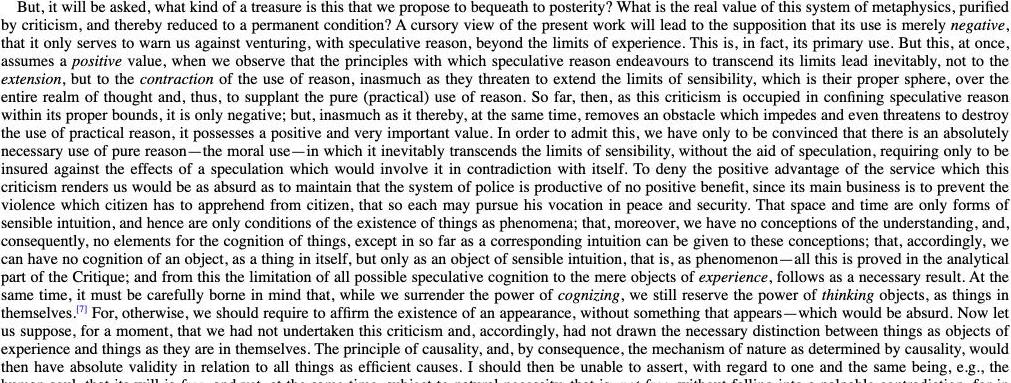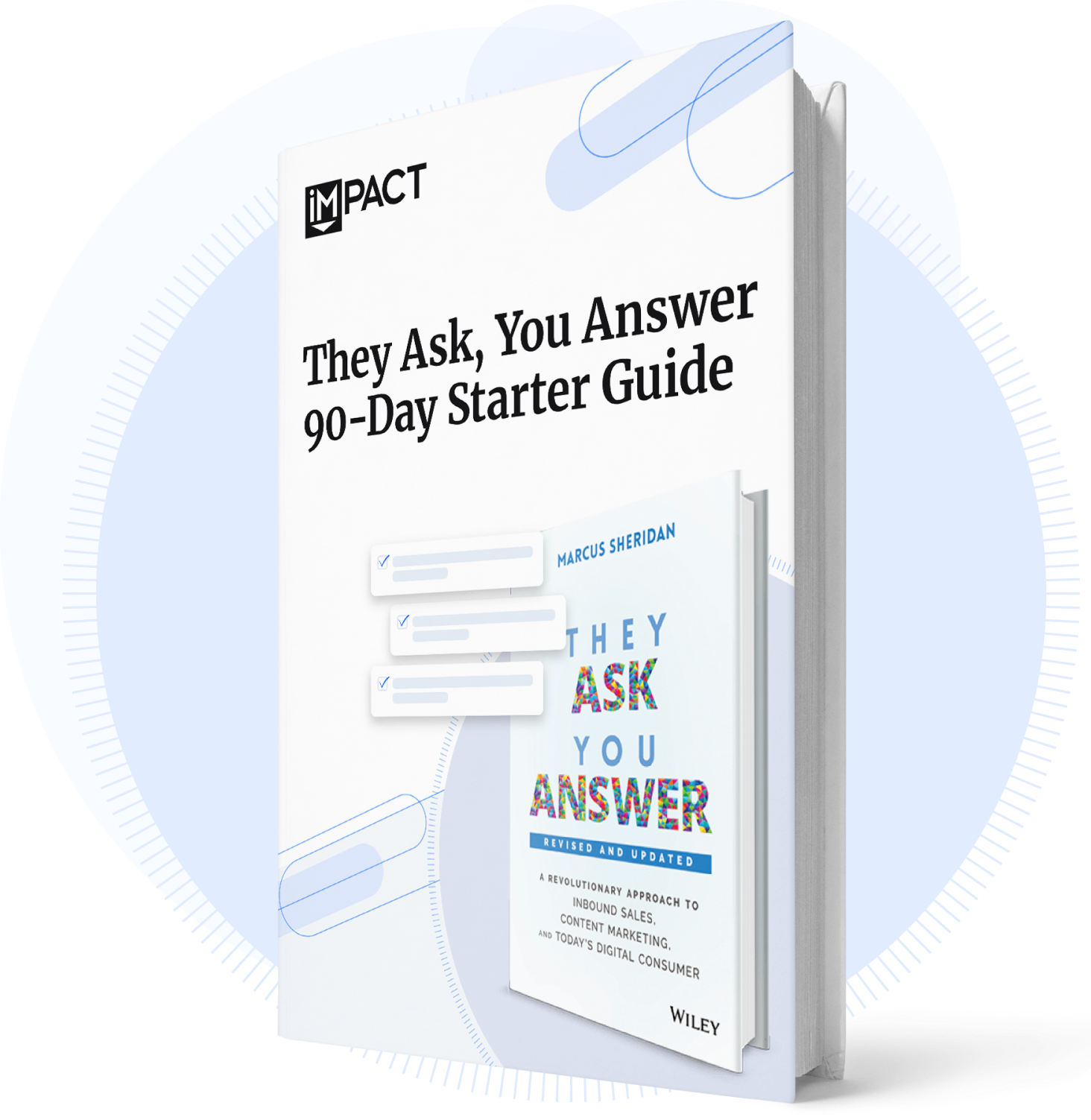Topics:
Content Managers Content and Inbound Marketing 101 Getting Started with They Ask, You AnswerJoin 40,000+ sales and marketing pros who receive our weekly newsletter.
Get the most relevant, actionable digital sales and marketing insights you need to make smarter decisions faster... all in under five minutes.
Content managers need to get information from SMEs; Here’s how they often do it wrong

By John Becker
Dec 24, 2020

Sometimes in our work as content managers, we can feel like middlemen. We’re office pen-pushers, putting the cover sheets on TPS reports so they can look pretty and get out the door.
For me, it looks like this: I meet with the sales team to hear a question they’ve gotten from buyers. Odds are these are questions about a specific service we offer. While I have a general familiarity with our offerings, I go to a subject matter expert (SME) to find out more.
If the customer has a specific question about our paid media services, I’ll go and check in with someone on that team to make sure I have my answers straight. Same thing if the questions is about HubSpot training, content coaching, website design, or anything else IMPACT has to offer.
And then here we are. I find myself being a conduit that brings the SME’s thoughts to our audience. They said it. I report it.
So, how do you present the information you’ve gotten from your SMEs in a way that doesn’t make you feel like a lackey middleman without a mind of your own?
The key is remembering what your job truly is. Hint: it’s not a cutter-and-paster who serves as a mere go-between. You are an essential link in the chain of communication, making sure your organization’s messaging and content is apt, accurate, and readable.
🔎Related: 3 essential lessons I learned in my first 90 days as a B2B content manager
So, what’s the problem with content managers just quoting the SMEs in their article?
Well, nothing’s really wrong with quoting your SMEs directly, but there are three big drawbacks to consider. You want to make sure you’re only using quotes when they help you, not just because they’re easy.
1. SMEs don’t say it how you want it to be said
In speech, we are rarely as articulate as we are in writing. It’s the very reason for cue cards and teleprompters.
Even in a structured SME interview, it’s likely your subject will careen from one topic to the next, dwelling longer than you like at one spot, rushing through some question, digressing, pausing, and picking up somewhere else.
Speech is rarely a linear act, and this leaves you with a mess of a transcript that might yield great kernels and quips, but few intact cogent paragraphs.
2. Big blocks of text quotes are not easy to read
Encountering a block of text in an article can be off-putting. It’s the reason we favor short paragraphs in our writing at IMPACT. Short paragraphs are just easier to read and digest.
When you start bringing in lengthy quotes from an SME, you’re likely to bring your reader face to face with a hefty paragraph of text.

See what I mean? Hat tip to Immanuel Kant for this one.
In the words of Wall Street Journal news editor William Blundell, “Nothing is easier than to stop reading.” A block of text is deal-breaker for many readers.
Unfortunately, in an interview situation people rarely speak as pithily as they write, and you end up with the exact rambling blocks of text you’re looking to avoid.
3. Your job is not parroting — it’s synthesizing
Here’s an actual transcript from an interview I did with our own Editorial Director Liz Moorehead. We were talking about how to find and onboard a content manager.
Now for those of you who don’t know her, Liz is smart as a whip and extremely well spoken. Still, this is what we get.
Me: So let's talk about the content manager hiring process. How do you find this person?
Liz: Um, I mean, you're going to go through some of the same structures that you would go through for any job. This is not like because you're finding a different person with different skill sets. You need to now go stand out and appear early in the morning with a net and hope like this new content manager appears. Like, you're still gonna go to the basics. Like, you're going to go to Indeed.com. You're going to go to other places, but you're just going to be looking for somebody different. Really what you're looking for, someone with native skillsets. Uh, that's why we often say like journalism grads or people who have come from like the community newspaper background are really good for this kind of role, because you want a person who knows how to interview and work in a fast-paced, deadline-driven environment, knows how to get things out of people who may not want to talk to them or how to craft the narrative and a story. Like, those are the native skillsets we're looking for.
Um, usually the thing I always try to tell people right off the bat that I don't hear people say very often is that whenever you are hiring for this job, the number one thing you need to keep in mind is that you need to hire someone who wants this specific job. Often what will happen is you will see digital marketers kind of try to backdoor their way into a company through something like a content manager position. And the challenge is avoiding somebody that doesn't want this specific role that is very content production heavy. That is about writing. That is about interviewing. They're going to be miserable and they are going to leave, but you'll probably notice the fact that I didn't prioritize industry knowledge. Like, that is not a prerequisite I look for ever.
Did you read it all? Probably not. Nor will your audience. So, your job as a content manager is to quote what you need to quote, paraphrase what you need to paraphrase, and throw the rest away.
When quotes matter — and when they don’t
When I was a high school English teacher, I’d always remind my students to support their points with quotes from the text.
Sometimes, I’d get back sentences like this: Hester Prynne’s hair is “black” (Hawthorne, 45). And the student would say, “Look, I used a quote!” This type of work often came from the same students who would always ask how many quotes they should have in each paragraph, which is like asking how many bites you should eat your sandwich in. It’s arbitrary micromanagement in the truest sense.
Such work was a case of a student following the letter of the law, not the spirit of the law. Yes, “black” is a quote from the author, and it is therefore empirical and unimpeachable as proof. But it doesn’t do anything to add to the argument. No one is looking for supporting evidence of Hester Prynne’s hair color. It’s not in dispute.
To put it simply — sometimes quotes matter, and sometimes they don’t.
Let’s go back to the example from my interview with Liz:
Me: So let's talk about the content manager hiring process. How do you find this person?
Liz: Um, I mean, you're going to go through some of the same structures that you would go through for any job. This is not like because you're finding a different person with different skill sets. You need to now go stand out and appear early in the morning with a net and hope like this new content manager appears. Like, you're still gonna go to the basics. Like, you're going to go to Indeed.com. You're going to go to other places, but you're just going to be looking for somebody different. Really what you're looking for, someone with native skillsets. Uh, that's why we often say like journalism grads or people who have come from like the community newspaper background are really good for this kind of role, because you want a person who knows how to interview and work in a fast paced, deadline-driven environment, knows how to get things out of people who may not want to talk to them or how to craft the narrative and a story. Like, those are the native skillsets we're looking for.
Um, usually the thing, I always try to tell people right off the bat that I don't hear people say very often is that whenever you are hiring for this job, the number one thing you need to keep in mind is that you need to hire someone who wants this specific job. Often what will happen is you will see digital marketers kind of try to backdoor their way into a company through something like a content manager position. And the challenge is to avoid somebody that doesn't want this specific role that is very content production heavy. That is about writing. That is about interviewing. They're going to be miserable and they are going to leave, but you'll probably notice the fact that I didn't prioritize industry knowledge. Like, that is not a prerequisite I look for ever.
Notice what I’ve highlighted. I took the red and used it as a quote in the article I wrote. I took the orange and paraphrase it in the article. The rest was left on the cutting room floor.
Here it is in the context of the article, color-coded:
So, why did I choose these parts of Liz’s answer?
The red is easy. I liked the phrasing she used. It felt like her reference to a community newspaper is specific enough that it comes from a real world experience, and it sounds more authentic in her voice. Plus, it’s short. I could get Liz’s voice in there without adding too much bulk to the section. In this case, the quote enhances and supports the idea — with specificity.
Still, note how I broke up the red to make it more digestible. I needed to frame her language with my own to make it feel fully cohesive.
The orange is a bit harder to pin down. The insight here is super interesting, but it’s a bit jumbled in its presentation. Again, speech is not writing.
So, I thought I could compress parts of it and expand others, rephrasing and repackaging it as a central idea in my own words. It didn’t seem necessary to keep this in Liz’s voice. On the contrary, that would make the idea less forceful.
Editing in context
Along the way of producing this article in question, I drew from an extended interview that yielded a near 6000-word transcript from which I wrote my draft. I trimmed thousands of words from the interview, paraphrased a few hundred, and quoted 109.
That’s right. Out of 5978 words, I quoted just over a hundred. That’s 1.8%. And it probably could have been less.
To let that sink in, chew on this visual:
When getting information from your SMEs, be ruthless about what makes the final cut. This, in essence, is your job.
Your job is to be a communications professional
Think about the president. Before you get upset and argumentative, put politics aside and think about the office of the president in general.
The White House has an entire communications team filled with press secretaries and spokespeople who work to convey the president’s message to the press and people.

There are times when the president holds press conferences himself (or herself, at some point), and the president certainly gives a lot of speeches. But, they trust their communications team to convey information accurately and concisely.
You, as a content manager, have also been placed in a position of trust by your company. Your business leaders trust you to package, shape, tweak, and expand whatever internal opinions and expertise need to be communicated to your audience.
This is the job of the content manager. You are not a pen-pusher. You are a communications expert who knows what needs to be said, who needs to say it, and how it can be made most useful to your audience.
You need to get out those knives and start slicing and dicing.
Content always starts with relationships
If you Google “onboard content manager”, you’ll see this:
There, in the top spot, is the article in question. You can click through and see the final result. I took a topic request from sales, which soon turned into a 6,000 word transcript from a three-person interview. However, it took my work as an editor and writer to shape 6000 words down to a 1,600 word article that managed to answer the original question thoroughly.
I was only able to produce this because the people I interviewed trusted me to make them sound their best.
As Liz herself is keen to remind me, content management is relationship management. If you don’t build rapport with coworkers, SMEs, and company leaders, your job will be a slog. People won’t want to be a part of the content process.
If you misquote or misrepresent their words, they’re unlikely to trust your future paraphrasals.
As a content manager, you must serve as a communications vanguard for your business — presenting your collective expertise with SEO-friendly, helpful content that answers questions and builds trust with your audience.
If you’re able to do both, making your audience and your SMEs happy, you'll serve not as a cut-and-paste middleman, but as an amplifier, a promoter, and a communications director.
Trust yourself to be that expert communicator your company needs.

